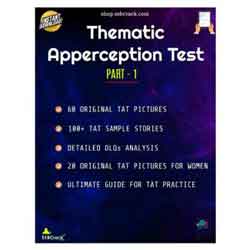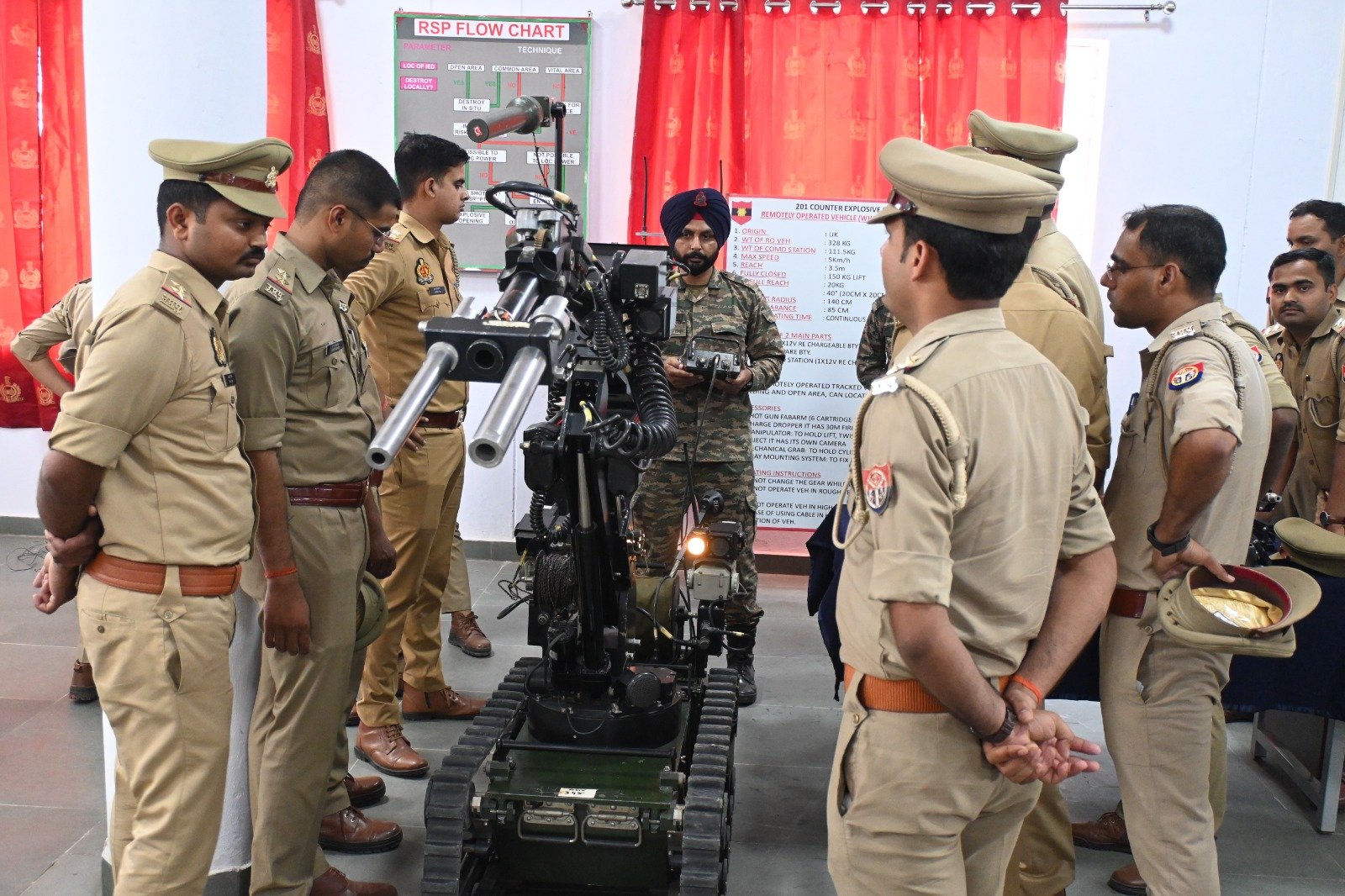Self-description test (SDT) is a stage-II test of the SSB interviews. As the name itself suggests, Self Description Test (SDT) is describing what is “I” i.e., self and everything related to self like what kind of a person you are; what you would like to become; what do your parents, friends, teachers think about you.

Therefore, Self Description Test (SDT) entails asking the candidate to write down, as to what, in his/her opinion the following people think about him/her:
- Your parents
- Your teachers/employers
- Your friends/colleagues
- You, yourself
The candidate is required to write down his/her own opinion about what the people mentioned in all the above categories think about him/her and what sort of a person he/she would want to become in life. Both, the positive traits of a candidate’s personality and the areas that he/she feels needs to be improved are required to be elucidated in four to five lines for each set.
- SSB Interview eBook Pack
- Thematic Apperception Test – TAT
- Lecturette Topics Part-1 eBook [100 Topics]
- Word Association Test – WAT
- Situation Reaction Test – SRT
- Officers Intelligence Test – OIR
Salient particulars to be borne in mind while writing a genuine Self Description (SD)
- Do not write more than five lines for each set, i.e. while writing the opinion’s of your parents/guardians, teachers/employer, friends/colleagues, and your personal view about yourself be exact and precise.
- Never copy someone else’s self-description, be honest and take feedback from all the above set of people to write an authentic self-description.
- The self-description must constitute some high and positive points of your personality and one odd perceived area of improvement in each set.
- Do not write OLQs or qualities while describing the opinion. Do not label yourself with good adjectives instead make them reflect through your actions and deeds.
- While writing about an identified area of improvement in each set, make sure not to use very intimidating words to describe it and also see to it that such shortcoming is not something which is very severe and irreparable.
- In case during the interview, the IO asks you about your weaknesses, you should also be ready with some examples from your life.
- Lastly, SD is very exclusive to your personality, and hence must be written in your own words and honestly, keeping the above fundamentals in mind.

Examples of Good and Bad Self-description:
- NEVER WRITE, “My parents feel I am very hard working, trustworthy and obedient son/daughter”. Rather write about how they identify and appreciate you as hardworking, reliable and obedient. So, WRITE “My parents always include me in all important decisions to be taken at home (shows trustworthy). They always entrust me with difficult tasks and challenges concerning our family matters and issues pertaining to others amongst our kith and kin as they feel I have the ability to handle them well and would never let them down (shows hard working, resilient and obedient person).”
- NEVER WRITE, “My friends tell me that I am too choosy while making friends and also that I get aggressive and rude at times”. Don’t overshadow your personality with any kind of negative talk that is either stimulated by self or triggered through peer pressure. So, WRITE, “My friends feel that I take a little bit of time to open up (choosy to make friends), but once I do, I am a highly friendly person and also that I get a bit impatient at times when things do not go my way (aggressive), however, I have started making a conscious effort to remain more composed and accept things as they come.”
- NEVER WRITE, “I am stupid, foolish or worthless”. Do not label yourself with negative personality traits. Instead, WRITE “Sometimes I do things that aren’t smart but am gradually revived with an optimistic self-talk .”
- NEVER WRITE, “I feel there is no scope of improvement in me, it is complicated and there is no way anything will work for me.” Don’t have self-doubt or keep the negative attitude. Eliminate the theory of negative self-concept. WRITE, “I will give it another try unless I succeed in my endeavours, I’ll tackle it from a different angle and try to make it work in all possible ways.”
- NEVER WRITE, “I am too lazy to get a work done.” It is strongly suggested not to mention yourself as lazy because Armed Forces are all about action, toughness and vigour. So, WRITE, “Earlier I wasn’t able to fit work (any particular job or task) into my schedule but can re-examine some priorities and willingly grab the opportunity to learn something new.”
Another important note to be taken is the words we use with ourselves, both aloud and in our mind begin to define the reality that we live. When we describe ourselves as undisciplined, lazy or worthless, we begin to reflect those patterns in our everyday life. On the contrary, when we change the words we use to describe ourselves (both internally and externally) focusing on positive attributes, we begin to display those positive behaviours more frequently. Therefore, it is advisable to change our self-talk. Negative thoughts and attitudes have been shaping our minds for quite some time, at a young age, so subtle we barely recognise them. Simply knowing that pessimistic impressions are damaging in nature, is not enough. We need to consciously replace them with positive self-talk.
When you think positive about yourself, you inculcate positive attributes in yourself and the response you give in self-description test, in the form of thoughts, feelings and actions against the constraint of time, you will not be able to fabricate your responses and hence, your true self will get truly revealed. It is advisable to all aspirants to always do a ‘timed practice’ and be ‘true’ to yourself while carrying out preparation for self-description test. Also, it would be great if you discussed your responses with a professional mentor, who can advise you to modify your natural thinking.
Also Read: 5 Examples of Self Description
Here, we would also like to caution you that non-mentored self-practice or improper guidance from an unprofessional person may invariably harm your psyche, as the mindsets once formed are very difficult to change.




















